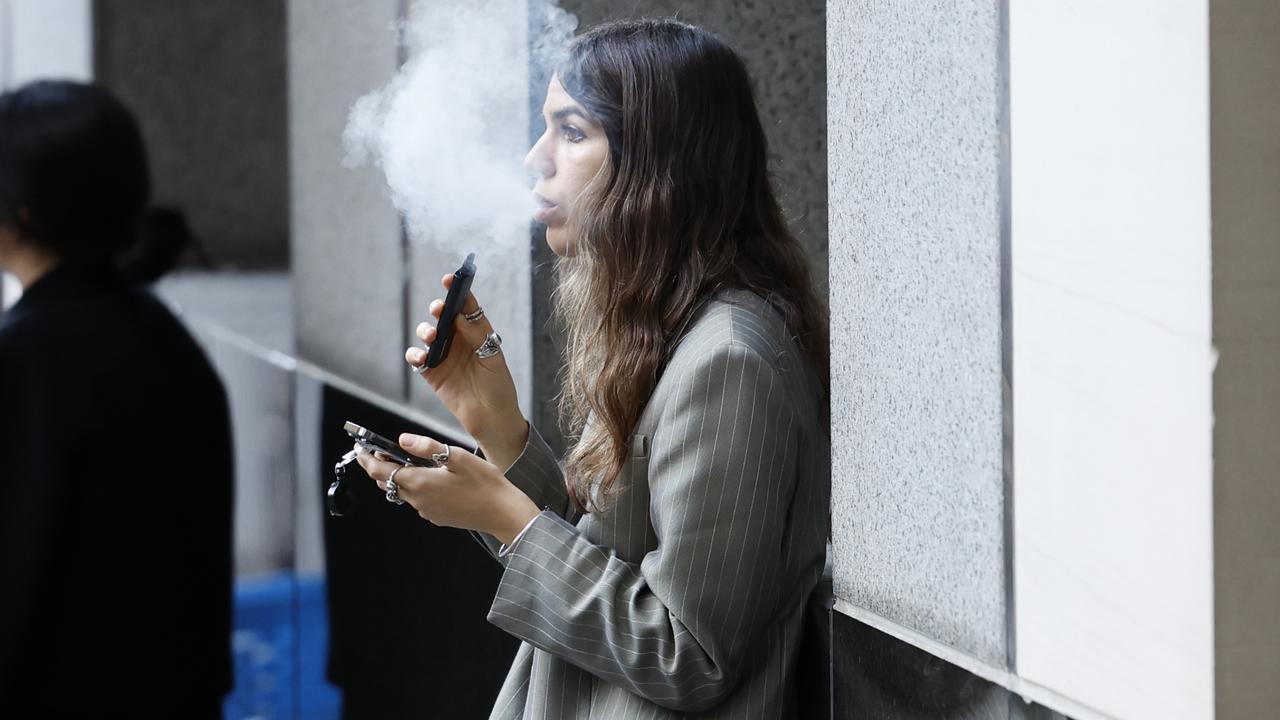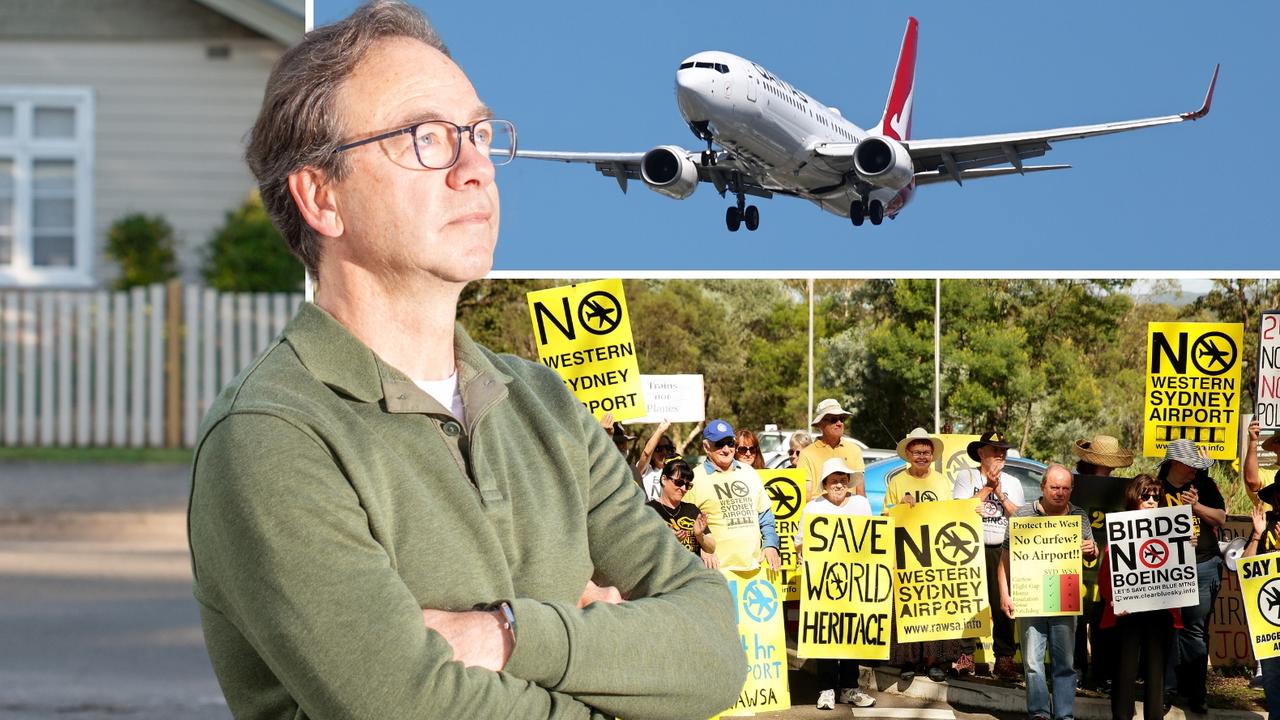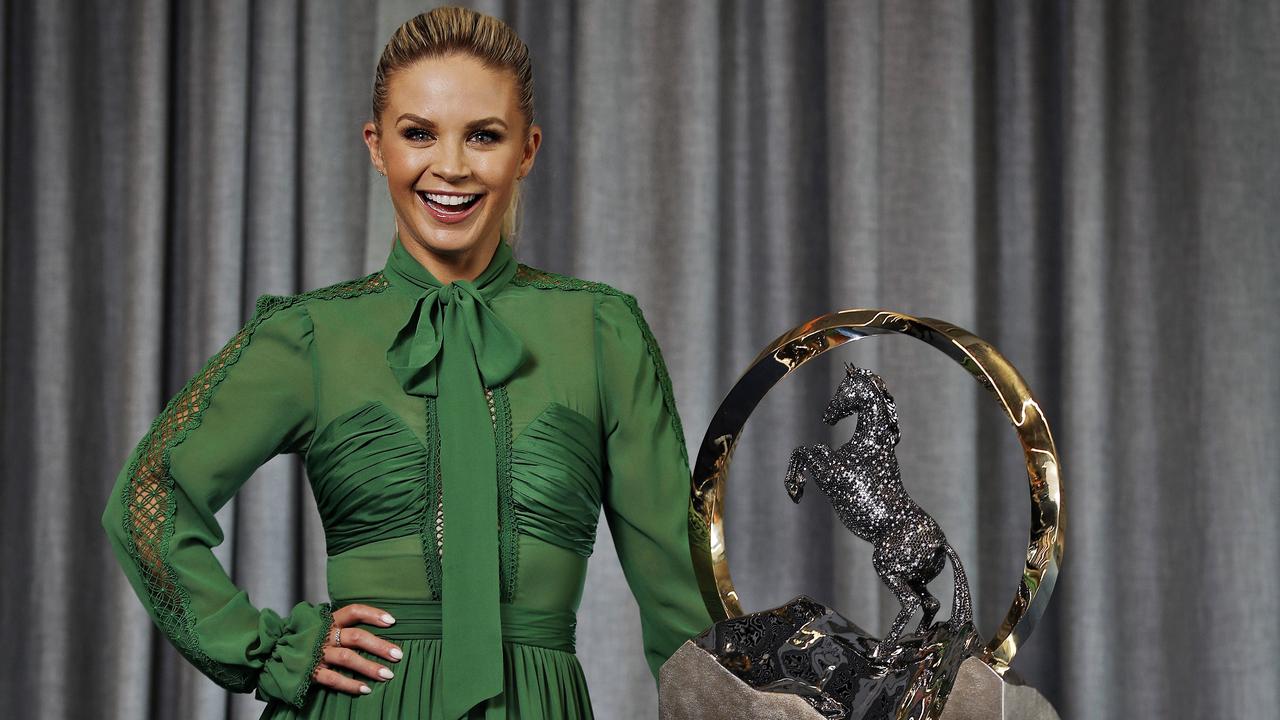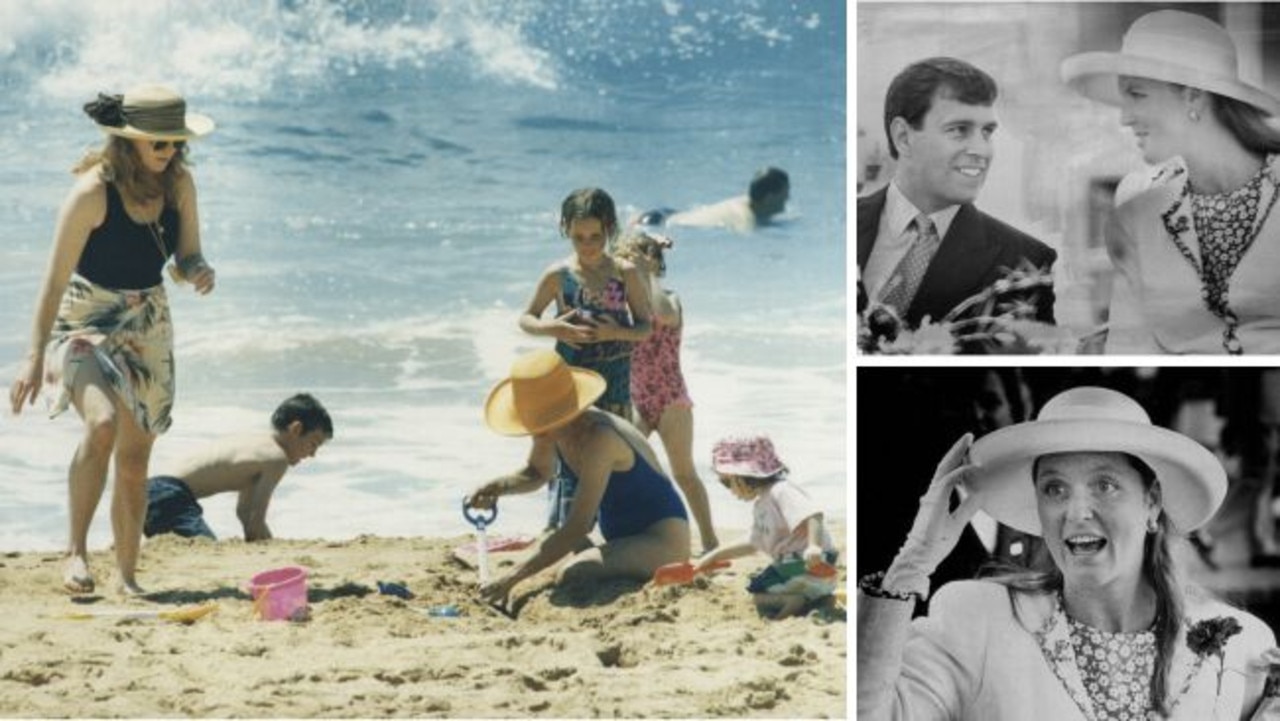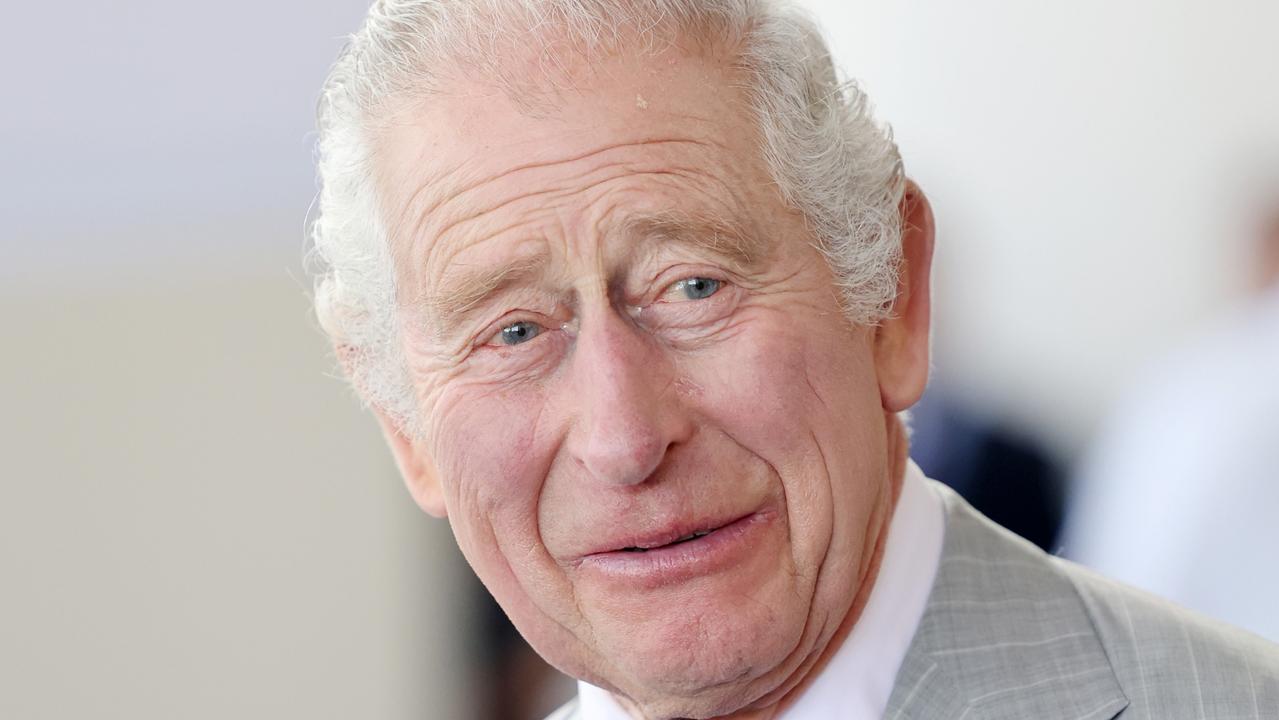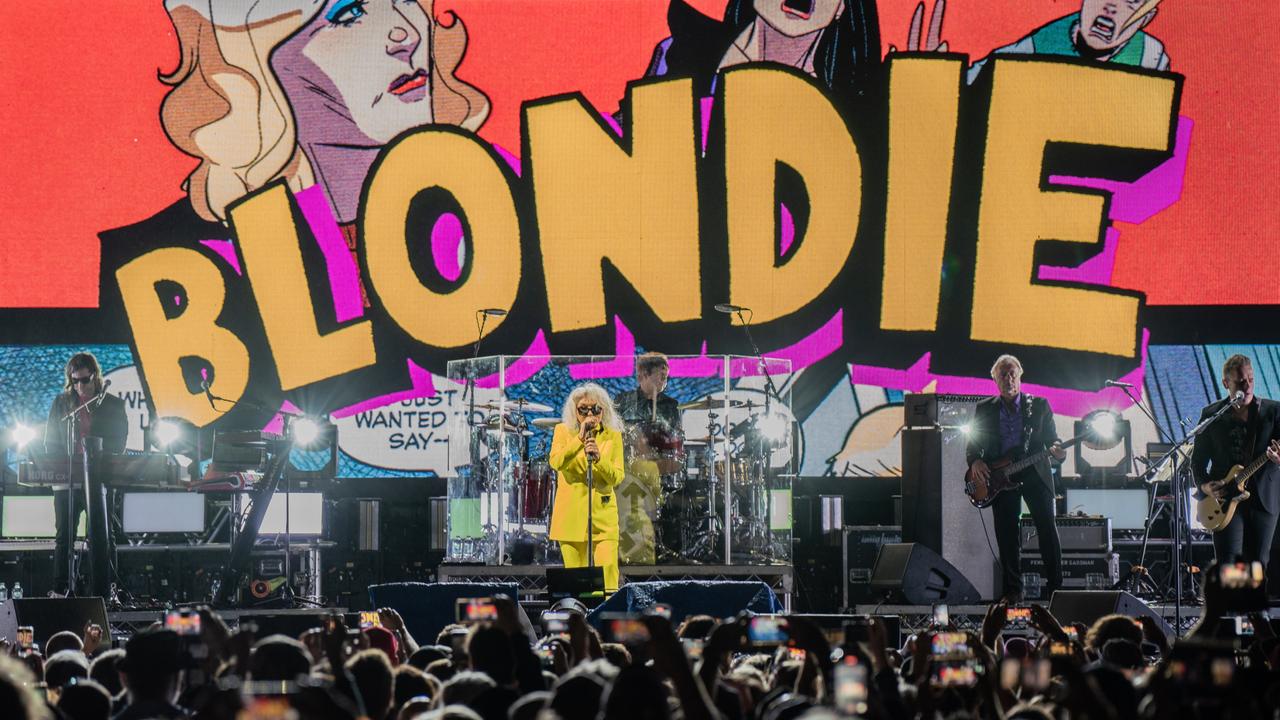Stories of survival: How women have seen the positive amid their pain
From being a world away from loved ones, to finding purpose just next door, these three women open up about their lives after being diagnosed with breast cancer.
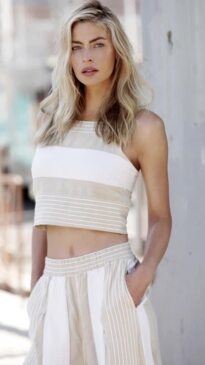
NSW
Don't miss out on the headlines from NSW. Followed categories will be added to My News.
In May, just two months before her 45th birthday, Sydney mother of three Peta McGirrreceived a diagnosis that changed everything – she had triple- negative breast cancer. An aggressive form of breast cancer, with higher rates of recurrence and no typical hormone receptors for doctors to target with treatment, she remembers reading about it and feeling terrified.
“But as bad as it sounds – I’ve been lucky and my prognosis is really positive,” she says.
“My incredible medical team believes I will make a full recovery.
“The journey hasn’t been easy though – as everyone touched by cancer will know.
“For me it’s meant five months of gruelling chemotherapy, and I still have surgery, radiation, and a few more months of immunotherapy ahead.
“But I’m grateful we caught it early, and that I’ll get to keep watching my three beautiful children grow.
“Through this really challenging time, I’ve drawn strength not only from my family, friends and amazing community that have rallied around me in ways I couldn't have imagined – but also by focusing on helping someone else, a person who inspires me every day: my 12-year-old neighbour, Tiare.”
Helping someone else has helped McGirr get through her own ordeal. In 2016, after what was supposed to be a routine tonsil and adenoid removal, her young neighbour Tiare contracted a rare brain disease called acute necrotizing encephalopathy (ANE). The infection left her having to use a wheelchair for mobility, and with vision and brain impairments.
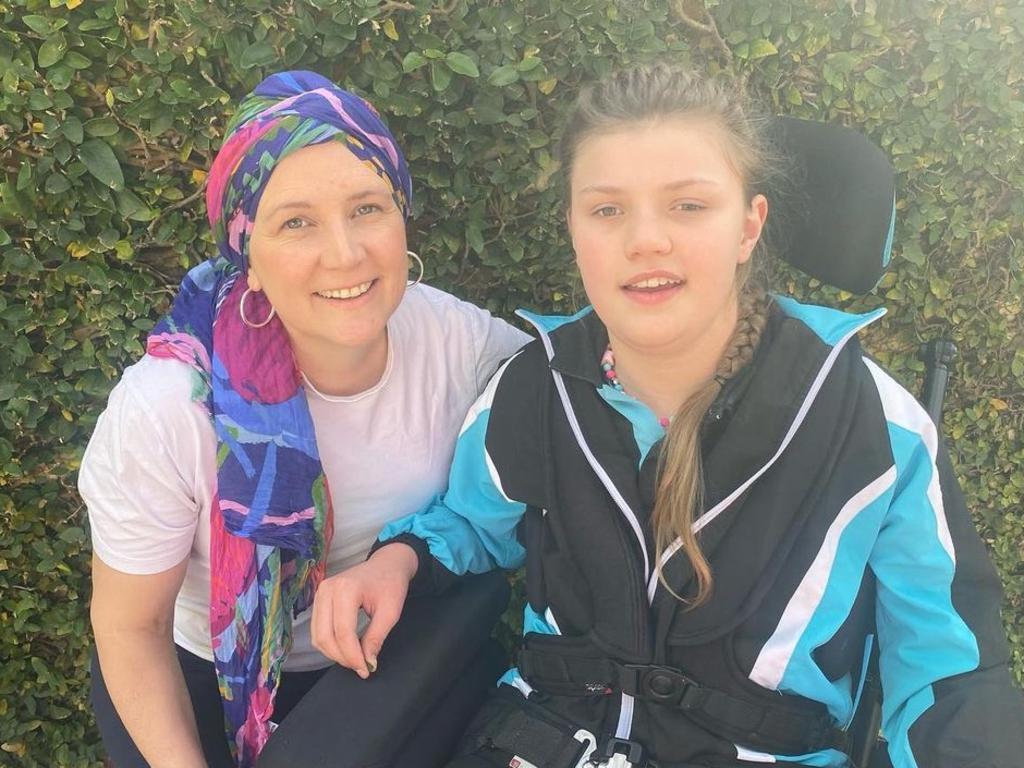
“However, despite everything, Tiare and her family have refused to give up on her dream of walking again and achieving the best possible quality of life possible for her,” McGirr says.
“When I heard that Tiare’s NDIS funding was cut by $38,000 this year without explanation – drastically reducing her access to the essential therapy she needs to maintain her muscle strength and mobility – I couldn’t sit by and watch.
“I decided to commit to walking 250km during my chemotherapy treatments to raise funds for Tiare’s rehabilitation. Walking during chemo hasn’t been easy – it knocks you down, and there never seems enough days between treatments that you feel yourself and up to the task. But whenever I struggle to keep going, I remind myself that every step is getting Tiare closer to her dream of walking again.”
So far, she has helped raise almost $8000 for Tiare’s Wish – but has her sights set on the goal of raising another $30,000 to replace the funding she lost. “Any donation, no matter how small, will help Tiare access the therapy she needs to continue working towards her goal,” McGirr says.
“This Breast Cancer Awareness Month, I’ve learned that even in the hardest moments, having purpose outside yourself can provide you even more strength than you thought was possible. Supporting Tiare has been one of the best medicines I’ve had during my cancer journey. It’s kept me going in my own fight and, with your help, can continue to make a real difference in her life too.”
To donate or find out more, visit mycause.com.au and search Walk for Tiare.
“Something died in me that day”
Kristina Schamberger moved from Germany to Australia almost five years ago and in December last year, heard the words from her doctor, “I am really sorry, you have breast cancer.”
At the time she was only 28, a bodybuilder and starting her new business.
“Something died in me that day,” she says.
“And sometimes I’m still grieving about that. But something new was born inside of me and I’m thankful for it every day. Sometimes we have to let go of things, people or parts of ourselves to make space for something better.
“It’s incredibly painful but one day you will see why it had to be that way.”
Diagnosed with stage two breast cancer, Schamberger’s cancer had already spread to two of her lymph nodes.
“It was a big shock, because I’m so healthy. I don’t party, I barely drink, I exercise, I eat healthy, I don’t have family history and I’m young, so it was quite a shock, and it was a really tough time.
“I’m glad I’m now in remission, but there’s not a single day where I don’t think about it, where I don’t have nightmares.”
With her family in Germany, Schamberger was lucky enough to have help from her friends in Sydney as well as ongoing support from the Cancer Council, who helped with treatments, as well as emotional support.
With no Medicare and hefty hospital bills, Schamberger was also terrified she would lose her visa.
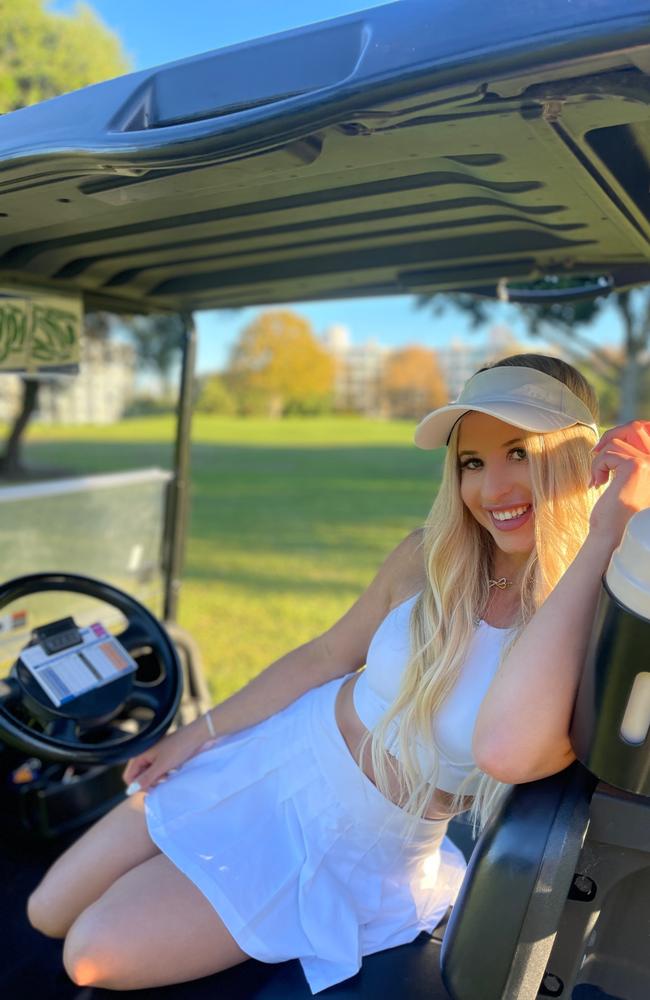
“I was scared of losing my visa, like I had to apply for a new visa, and you have to do a health assessment and having cancer can be very difficult,” she continues.
“The Cancer Council helped me with pretty much everything. I don’t have Medicare and my overseas insurance didn’t cover everything, so it was quite stressful financially because obviously treatment is very expensive.
“There were a lot of challenges that came on top of just trying to survive.”
She also had to make one of the hardest decisions of her life.
“My biggest dream has always been to be a mum one day,” she says.
“Because of the hormone therapy, I’m now in, like, temporary, artificial menopause.
“So at the moment, I obviously can’t have children so I had to go to the IVF clinic and think about egg freezing.”
Fertility preservation is covered for permanent residents, meaning Schamberger would have to pay out of her pocket.
“I decided against egg freezing because I had hormone positive cancer and I didn’t want to get all the injections with the hormones,” she says.
“Now I’m pretty much just praying that after I stop the treatment that my body will bounce back.
“It’s most likely my ovaries should wake up again and I should be able to get pregnant. But there is no guarantee that when I’m back to normal I will be able to have children.
“But I’m pretty confident, and if not then there are other ways I can have children like through adoption and other options, I just put my fate out there.”
Battling cancer is hard enough, but not everyone talks about the difficulties served with remission.
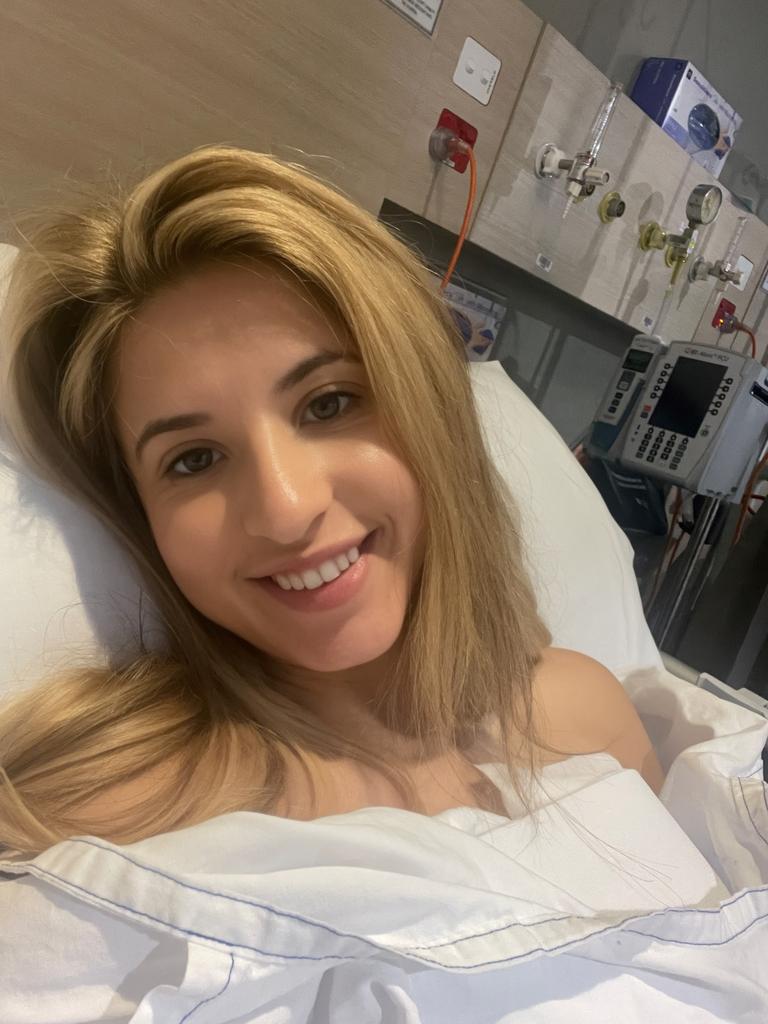
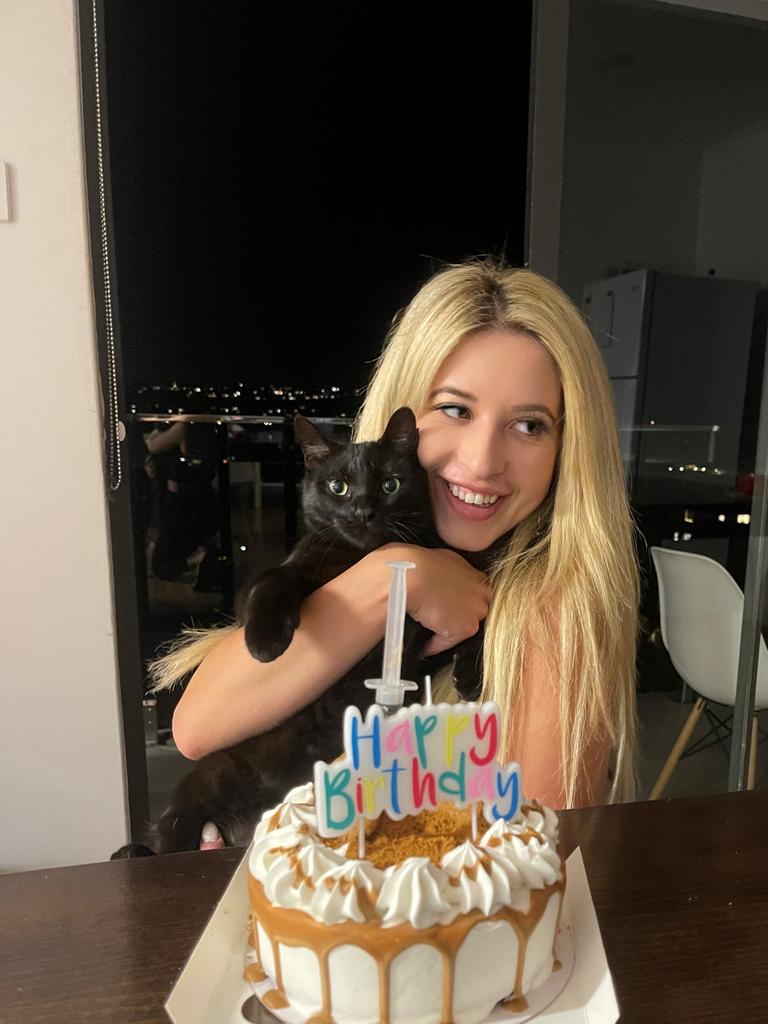
“It changed my whole life on one hand, it was, like, the toughest thing I ever went through, and I’m still struggling,” Schamberger admits.
“The side effects and being in early menopause and everything is so hard but at the same time it just made me appreciate life so much more.
“It sounds silly, but I don’t think it happened (cancer diagnosis) to me, but for me.
“Every challenge brings something good, even a challenge like that (the diagnosis), and sometimes I don’t exactly know what the positive thing of it is, but I know there will be something positive coming out of it, and maybe I will know about it next year, maybe in 10 years, but I’m convinced there’s something positive, and that’s what’s keeping me going.
Now 29 years old and one year into treatment, she will be on medication for another five to 10 years.
“I’m on targeted treatment, there’s a pill I’m taking every day. It has some similar but lighter side effects like chemotherapy.
“So far I’m doing fine with that in combination with hormone treatment, which put me in like an artificial menopause. With those treatments, they’re pretty confident that the cancer won’t come back.”
“You’re just in shock, like literally frozen”
Czarina Deldio was a self checker, it was part of her routine that she would check for lumps monthly.
In April 2022, she discovered a lump on her left breast which felt different from her previous self-examinations. After a visit to her GP, further tests and a mammogram the now
46-year-old heard the news that shocked her life – she had breast cancer.
“I had a PE teacher in high school that said to me, ‘just make sure you check your breasts’ – I didn’t know what I was checking for, but every time I had my period I checked my breasts,” she says.
“I was just doing the routine, and I went, ‘oh that feels different, like why can I actually grab this thing? This feels really, really weird.’”
When the diagnosis came a month later, there was only one thing that raced her mind with fear.
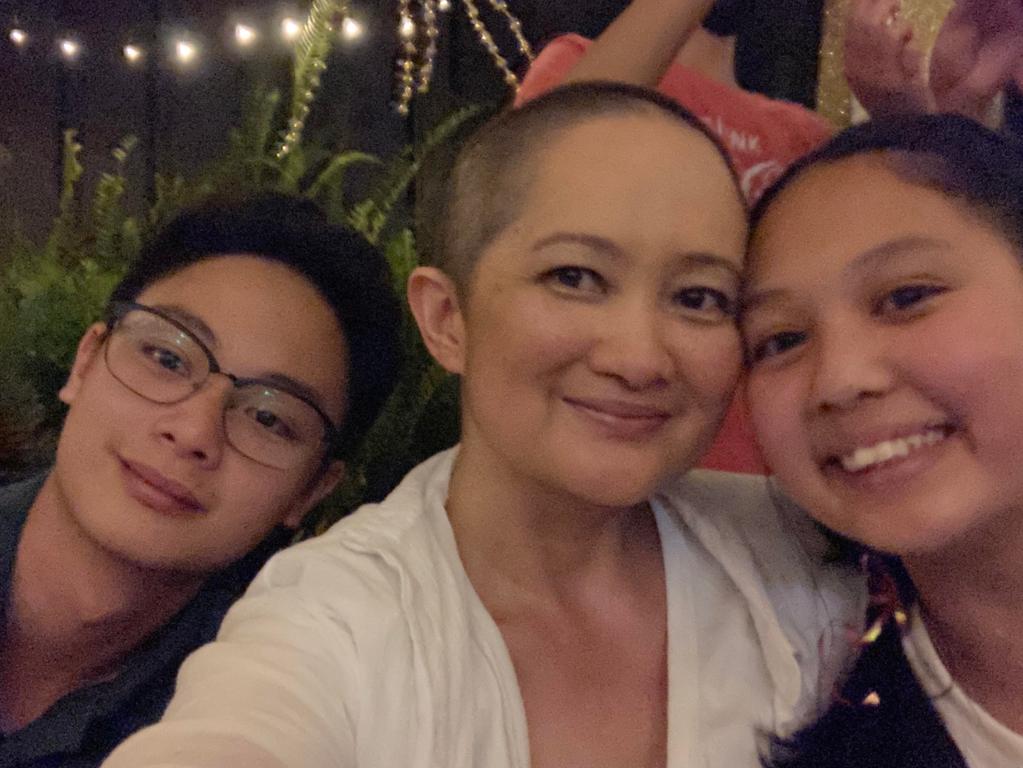
“Am I going to die?” she questioned.
“You’re just in shock, like literally frozen.
“You only hear the word cancer, and that’s it. I’d always been diligent in checking my breasts, I didn’t know anyone in my circle that had gone through breast cancer.
“I’ve had family that have had cancer, my grandparents and they passed away from it. So my very first thought without even thinking was am I going to die?
“You’ve got very little information, yet your whole world is just broken.”
Living in Sydney and of Filipino descent, Deldio is now committed to raising awareness about breast cancer.
“I always wish that there was a second phone call that said, ‘Czarina we’ve got your diagnosis, we are breast cancer counsellors, and we know you’re in shock, but know that what you’re feeling is absolutely normal,’” she says.
“Because you have no information and I just wish someone had said that what I was feeling was okay, but that wasn’t there.
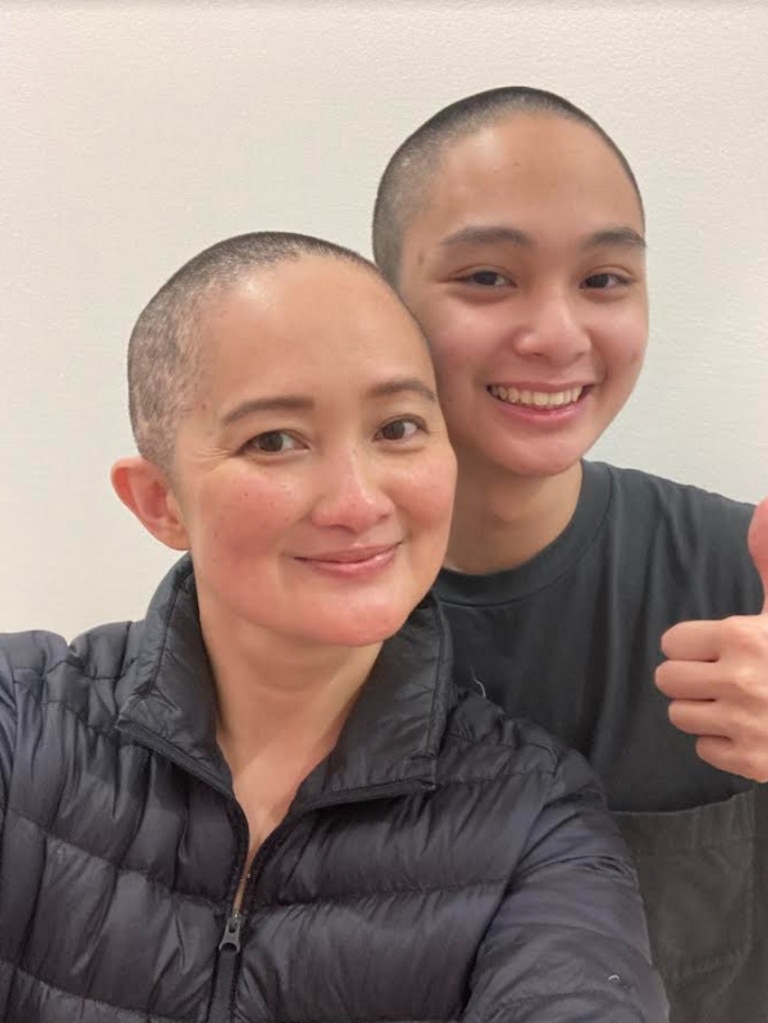
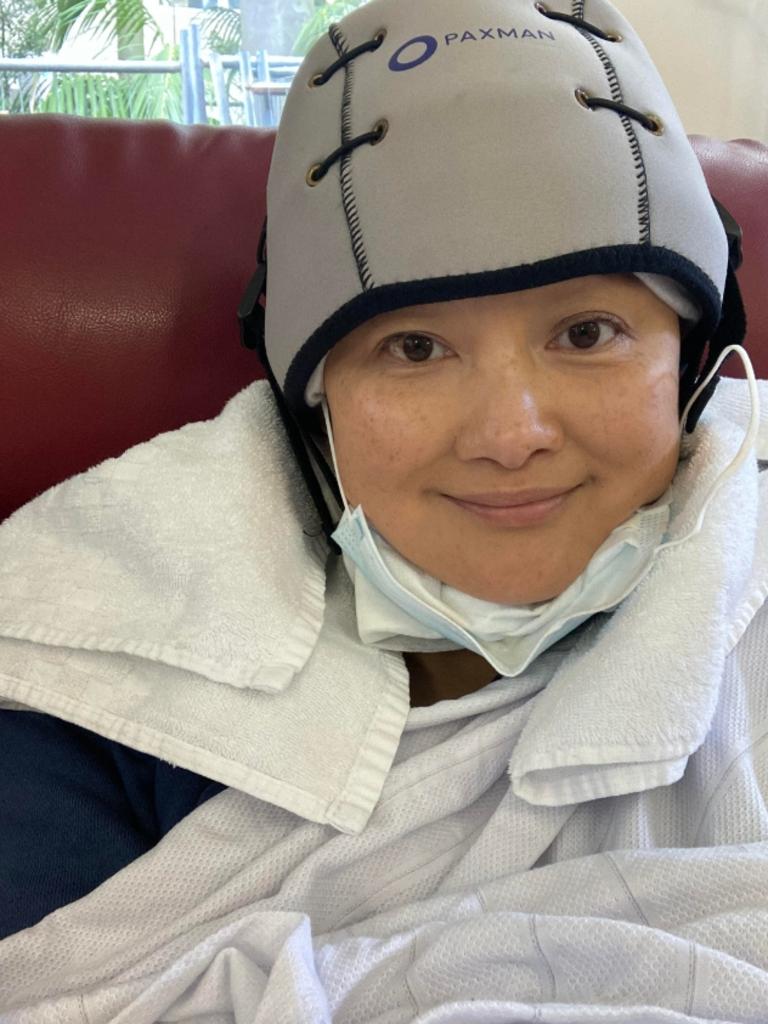
“The fear that I had in that initial moment, you don’t have to have it. It changes your life absolutely but you don’t have to be as scared as I was in that moment.
“As much as it is a physical challenge, it is so much more a mental health challenge.”
Having gone through separation with her husband in 2018, signing divorce papers in 2019, enduring lockdown in 2020, then diagnosed with cancer in 2022, she couldn’t catch a break. At the time her children Gabriel, now 21, and Amelia, 15, were her biggest concern.
“My whole concern really was, how am I going to get my kids through this? Because they’ve gone through enough,” she says.
After tests revealed she had stage 2 cancer that was caught early, she was offered hope, with her oncologist saying they could cure this cancer.
“After a whole month I thought I was going to die and now you’re telling me cancer and cure can actually be in the same sentence? That was a massive shock.
“I went, just tell me more because I have just been scared shitless. Thinking, planning, doubting and questioning every life choice I’ve ever made up until that point, and now you’re telling me that you can actually cure this cancer.
“They took out the tumour, I didn’t have a clear margin so they had to take out the lymph nodes, three of the two still had cancer in them. At that point, they said to me because it’s spread that far, we need to go through chemo and radiation.”
She says acceptance is a big factor.
“Accepting the diagnosis so you’re no longer fighting it, accepting that the chemo is actually going to help you, was a big deal. I had to get sick in order to get better,” she says.
When her hair began to fall out, her son Gabriel made a heartfelt promise to shave his head in solidarity with her.
“When she shaved my hair there were a lot of tears, there was a lot of love … now I can never look at me losing my hair as a bad experience, because it was such a beautiful experience,” she says.
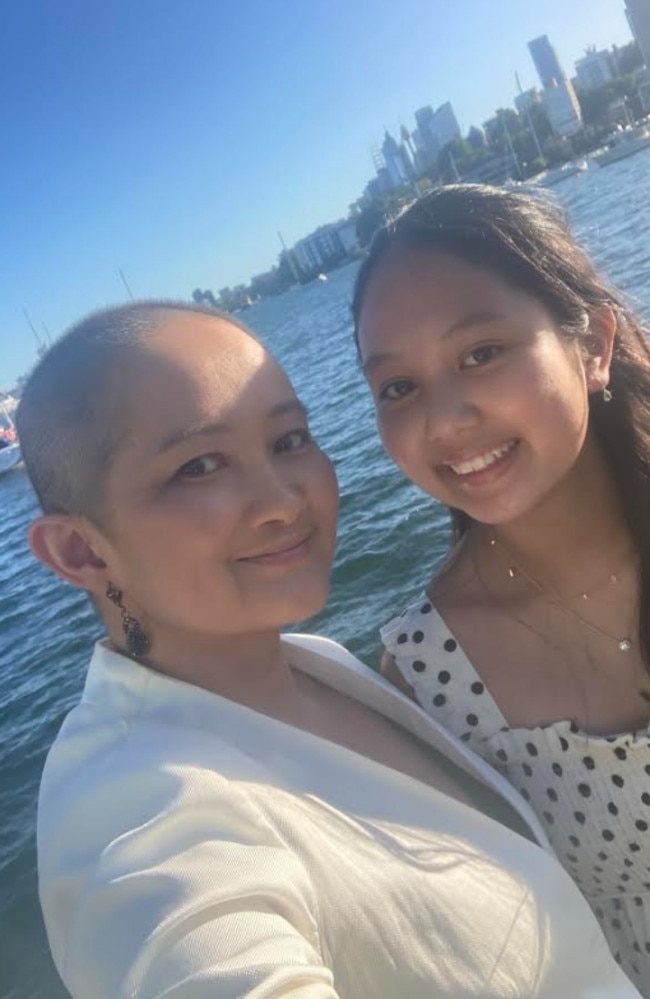
“I was happy to just be walking around with a shaved head because it was a part of me being very open with my experience.”
As a business analyst, she returned to work, but she didn’t want people to pity her – so she educated them.
“I didn’t want people to think that I was sick – I mean, look, I was sick, so I gave my co-workers a PowerPoint presentation explaining my chemo cycles and how I feel during those days,” she says.
“Because they understood the cycle, it meant that when I was going into treatment, they were very kind on those three or four days, like they just knew where I was in the cycle.
“I had so much support from my family, friends, co-workers and community, I am forever grateful.
Today, Deldio is cancer-free but remains on hormone blockers for prevention.
“You learn to live in the present. You learn to appreciate your value of time which means you have the ability to dismiss things that are not adding value to your life and to the people that you love around you.
“I love hiking, fishing, walking, just being able to appreciate and witness the sunset and stargazing on the beach and watching whales. It’s just life, there’s so much more to life. If anything, it’s given me a boost to live more of it.
“Check your breasts – early detection is absolutely key.”
1 in 8 women will be diagnosed with breast cancer in their lifetime
More Coverage
Originally published as Stories of survival: How women have seen the positive amid their pain


